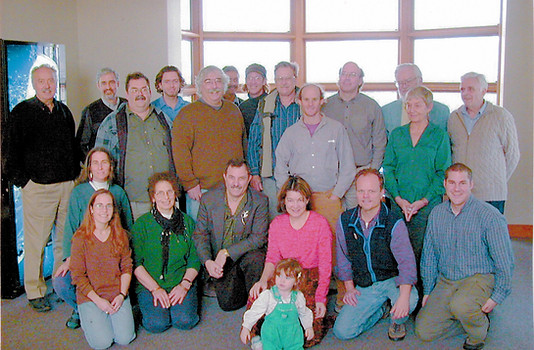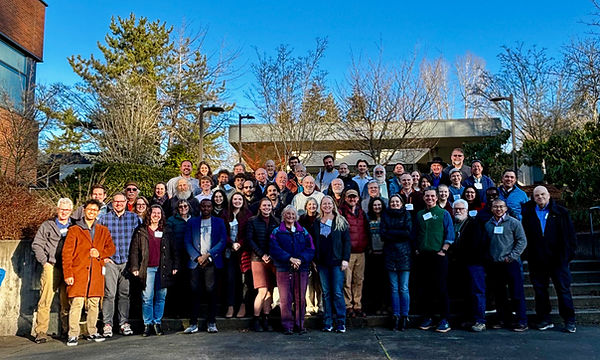Acerca de

The first ETHOS, June 2000
Aprovecho Research Center, Cottage Grove, OR. Not pictured (taking the photo): Dean Still
About ETHOS
Since 1999, ETHOS (Engineers in Technical and Humanitarian Opportunities of Service) has been a catalyst for collaboration in the household energy sector. The annual ETHOS Conference brings together experts from industry, academia, NGOs, and funding organizations to share research, explore emerging challenges, and form partnerships that drive real-world impact.
We focus on creating space for meaningful dialogue that sparks collaboration and long-term partnerships. During these gatherings, a wide range of stakeholders work together to bridge the gap between innovation and implementation. Field practitioners surface real-world challenges, researchers identify new areas for study, designers connect with organizations to test prototypes, and funders discover aligned initiatives.
Although ETHOS has been around for over 25 years, the annual conference remains focused on current and emerging priorities, such as climate change, methane emissions, carbon credits, and fuel renewability. Presenters have shared insights on forced-air combustion, pay-as-you-go energy models, gender equity in energy access, and more.
ETHOS continues to evolve alongside the challenges and opportunities of the household energy sector, serving as a platform for connection, action, and impact.

ETHOS 2001, Seattle University, Seattle, WA
Our Origins
The history of ETHOS began in 1999, when Dr. Mark Bryden of Iowa State University reached out to Aprovecho Research Center (ARC) after reading a study that showed high-mass stoves were often outperformed by the three-stone fire in wind-sheltered conditions. Interested in further exploring cookstove efficiency, he partnered with ARC, which had been trained by Dr. Larry Winiarski in using the 1987 Water Boiling Test (WBT) and was starting to apply standardized testing to improve stove design.
When Dr. Bryden visited ARC on Hazelton Road near Cottage Grove, Oregon, their partnership took root—and ETHOS was born. In its early years, ETHOS supported hands-on research at ARC by interns from the University of Dayton and researchers like Dr. Nordica MacCarty, who spent a summer studying Rocket Stoves. This work was intentionally structured to bridge the gap between laboratory testing and field implementation—a disconnect widely recognized across the sector and often cited in the literature.
To help address this challenge, Dr. Bryden and Dean Still proposed an annual conference to improve communication between designers, researchers, and implementers. The first official ETHOS meeting was held at ARC in June 2000, bringing together leaders in the field including Peter Scott, Ken Goyer, Don O'Neal, Mike Hatfield, Dr. Larry Winiarski, and others. In 2001, the second meeting was held at Seattle University, and by 2002, ETHOS found its permanent home at Northwest University in Kirkland, WA.

ETHOS 2025, Northwest University, Seattle, WA



